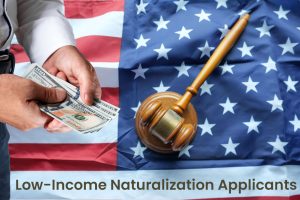President Trump’s stance on U.S. citizenship and immigration is well known. Throughout his presidency, he is frequently criticizing the current green card system—particularly family-based immigration—arguing that America should prioritize skilled immigrants over those entering through family ties.
He has consistently advocated for a merit-based or points-based system, similar to those in Canada or Australia. Under such a system, green cards would be awarded primarily to individuals with strong education, English proficiency, and specialized job offers.
What Is a Green Card?
A Green Card, officially known as a Permanent Resident Card, grants non-citizens the right to live and work permanently in the United States. It also allows for international travel (with certain restrictions) and provides a path to U.S. citizenship after several years—typically five, or three if married to a U.S. citizen. Check if you are eligible to apply for citizenship.
The term “Green Card” dates back to the 1940s when the original document was green. Although the card’s appearance changed over time, the nickname stuck. Today’s versions have returned to a greenish tint.
How Can You Get a Green Card?
There are several legal pathways to obtaining a Green Card:
1. Family-Based Green Card
This is the most common route. Immediate relatives of U.S. citizens—such as spouses, unmarried children under 21, and parents—can apply. Other categories include siblings and married adult children. The process usually starts with the U.S. citizen or green card holder filing Form I-130 (Petition for Alien Relative), followed by the applicant pursuing Adjustment of Status (if already in the U.S.) or Consular Processing (if abroad).
2. Employment-Based Green Card
Granted to individuals with specific job offers, qualifications, or skills. Categories include:
- EB-1: People with extraordinary abilities, researchers, multinational executives
- EB-2: Advanced degree holders or individuals with exceptional ability
- EB-3: Skilled workers and professionals
- EB-4: Special immigrants (e.g., religious workers, U.S. government employees abroad)
- EB-5: Investors who invest $1,050,000+ in a U.S. business creating jobs
Employers usually file Form I-140 (Immigrant Petition for Alien Worker) to begin the process.
3. Diversity Visa Lottery
Also known as the Green Card Lottery, this program is for individuals from countries with historically low U.S. immigration rates. Applicants must meet basic education or work experience requirements and apply through the official Diversity Visa Program. Winners go through an interview and background checks.
4. Asylum or Refugee Status
For individuals fleeing persecution due to race, religion, nationality, political views, or social group membership. After being granted asylum or refugee status, individuals can apply for a Green Card one year later using Form I-485.
5. Special Categories
Other pathways include:
- U Visa: For crime victims who help law enforcement
- T Visa: For victims of human trafficking
- Special Immigrant Juvenile Status: For abused or neglected minors
- VAWA: For victims of abuse by a U.S. citizen or green card-holding family member



